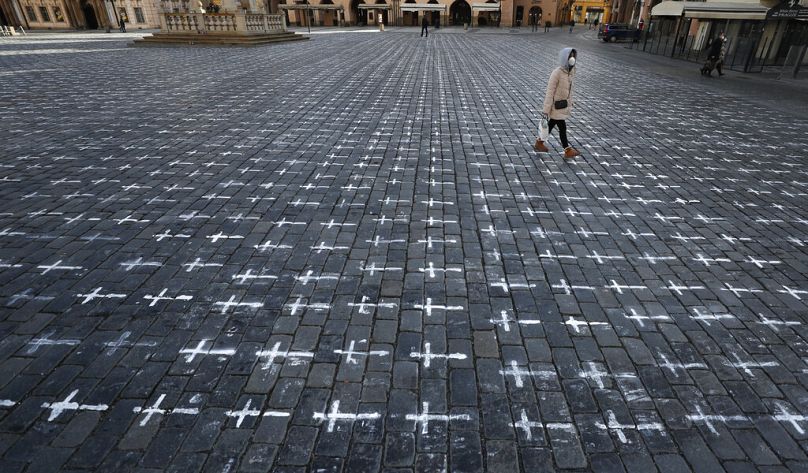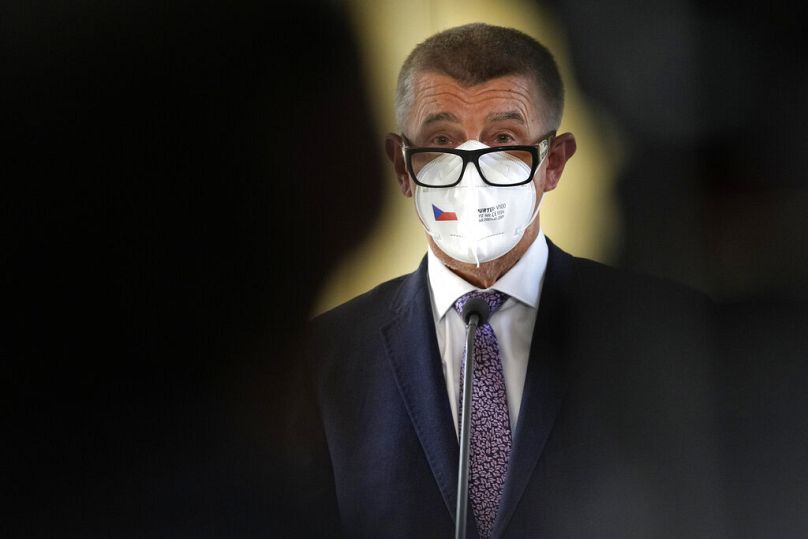From the Pirate Party to post-election alliances, here's your guide to the Czech general election.
Whoever wins the October 8-9 general election in the Czech Republic may be the least interesting event of the country’s political calendar this year, with rumours swirling over possible post-election alliances and whether Prime Minister Andrej Babis may be pressured to resign even if his ruling party retains power.
 ADVERTISEMENT
ADVERTISEMENT
 ADVERTISEMENT
ADVERTISEMENT
Earlier in the year, it appeared as though Czech politics was heading towards a major upheaval at the election, which for the first time will see large political coalitions compete to take office.
From January to early June, almost every opinion poll put the Pirates Party-led opposition coalition several percentage points ahead of the ANO, the party founded by Babis and currently in power. In May, for instance, the newly-formed Pirates and Mayors alliance was on 27% of the popular vote, compared to just 21% for Babis’ ANO party.
But latest surveys show that ANO’s popularity has surged since the summer: a combination of the Czech Republic getting over the worst of the COVID-19 pandemic and the ruling party’s more masterful handling of pre-election campaigning, analysts say.
Kantar CZ, a pollster, had ANO on 27.5% of the vote in August, compared to just 21% for the Pirates’ coalition and about the same for the centre-right SPOLU alliance, one member of which is the Civic Democratic Party (ODS), currently the largest opposition party. ANO has since slipped back after improved figures for SPOLU.
“Most Czechs are really tired of the epidemic and do not want to think too much about the more than 30,000 dead from the spring wave of coronavirus,” said Ivana Karaskova, from the Association for International Affairs in Prague.
“In the spring the government was criticised for acting in a chaotic manner and even downplaying the epidemic and for not being able to provide sufficient amounts of vaccines to the population,” she added.
“ANO polls reflected the dissatisfaction of the population and the PM's popularity dropped accordingly.”
In early 2021, the Czech Republic had one of the world’s highest rates of COVID-19 infection per capita. However, after stringent restrictions were imposed and the country’s vaccination campaign normalised, it was the fourth-least affected country in the EU by late August.
“The current opinion polls reflect the general feeling of the population that the country is recovering and it needs to move forward,” Karaskova said.
According to Lubomir Kopecek, a professor of political science at Masaryk University, Babis’ ANO party has also successfully managed to bring different topics into the election game. Since half of its voter base are seniors, ANO’s campaign has focused on how it has increased pensions since taking office in 2017.
Babis has also played the migration card, said Kopecek, which has attracted support and created a problem for the Pirate Party, which is seen by some as “too friendly” towards immigration.
The Pirate Party has also faced attacks in the press, some owned by Babis, for being part of an alleged “woke” and “Marxist” campaign to alter Czech traditions.
It is currently the second-largest opposition party and has been widely criticised, even by its supporters. It's been attacked for campaigning mistakes, from poor messaging to having too many manifesto policies.
“[Babis’] campaign is more direct, less nuanced and to some extent even stereotypical, which resonates well with his electorate. The opposition has had trouble matching this style, so far,” said Karaskova.
Given the latest opinion polls as well as anecdotal voter sentiment, analysts reckon that ANO is likely to win next month’s general election, which is set for October 8. But there is much greater uncertainty over what happens post-elections.
The first question is what happens if ANO does indeed win the popular vote. Czech election rules make it incredibly unlikely that it would be able to form a majority government by itself, just as it wasn’t able to do after the 2017 ballot.
However, the junior partner in ANO’s current coalition government, the Social Democrats (CSSD), are tipped to lose many of their seats in October. The latest polls have them on just 3.5% of the popular vote, down from the 7.3% they gained in the 2017 ballot.
Up until earlier this year, ANO’s coalition government also depended in parliament on the support of the Communist Party of Bohemia and Moravia, which is also tipped to lose seats in October.
That means ANO will have to search for new coalition partners if it wants to form a coalition deal after October’s polls, which may be an uphill task for a populist party without traditional allies.
It is also foreseeable that one of the two main coalitions, the Pirates and Mayors and SPOLU, may themselves attempt to form a coalition government even if they don’t come first in the popular vote.
However, President Milos Zeman has already intimated that the winner of the ballot will have the first chance of forming a coalition government.
The Prague grapevine has long gossiped that Babis could one day be forced to cut a deal with the far-right Freedom and Direct Democracy (SPD), which is currently polling on around 10% of the popular vote and will probably control an important number of seats in parliament after October.
Babis has rejected any suggestion of forming a government with the SPD, while the far-right party has also said it has no interest in being a junior partner in any coalition.
“The SPD can be the support party of an ANO´ minority government but not classical coalition partner,” reckons Kopecek. This means the SPD could lend an ANO-led coalition government its support in parliament -- just as the Communists have done since 2017 -- but without formally joining the government.
“Babis would not be excited about the cooperation with the SPD, but if he does not have another possibility, it is possible,” Kopecek added.
Karaskova said there is also a chance that Babis’ ANO party could cut a coalition deal with the ODS, the country’s traditional centre-right party that was formed after the fall of communism in 1989.
ODS, led by the intellectual Petr Fiala, has also rejected suggestions it would cooperate with ANO. It will go into October’s election as part of the three-party SPOLU alliance, along with the Christian-democratic KDU-CSL and centrist TOP 09.
However, ODS might agree to work in coalition with ANO on the condition that Babis does not remain prime minister, Karaskova speculated.
Babis’ possible retirement as prime minister is the other wild card of October’s general election, with analysts predicting that he may choose to step down even if his ANO party wins the ballot.
On the one hand, this could be done for simple electoral maths. Under the scenario that ODS or another traditional political party agrees to cooperate with ANO in a formal coalition, it is most probable that they would only do so if Babis isn’t prime minister.
Kopecek speculated that Babis might in fact want to step down as prime minister out of self-interest. It has also long been rumoured that Babis would prefer to step away from running the government in order to prepare a bid for the presidential election in 2023.
More pressing are his economic interests. Before entering politics as a finance minister in 2014, Babis was a prominent businessman in the Czech Republic, rising to become the country’s second-richest man through his vast Agrofert Group conglomerate.
Since 2015, however, he has been under investigation by local authorities as well as European investigators for alleged corruption and fraud of EU subsidies.
In April, a European Commission audit found that Babis had breached conflict of interest rules over his control of trust funds linked to his Agrofert business empire. This ruling could force the Agrofert conglomerate to return all EU subsidies awarded after February 2017, which stand at around €11 million.
In July, the president of the European Commission, Ursula von der Leyen, intimated that the €7 billion in grants the EU has earmarked for the Czech Republic as part of Brussels’ COVID recovery package could be held up over the investigations in Babis’ alleged conflict of interest.
Sceptics assert that Babis has used his political power to aid his companies and now would prefer to step away to limit the financial damage. “Financially, this is a very unpleasant situation for him; it's really big money,” he said.
According to Karaskova, Babis may step down as prime minister in exchange for a new government not investigating the myriad corruption allegations made against him and his firms. This may be the clincher over possible post-election discussions between ANO and the ODS, she said.
All in all, the intrigue of Czech politics this year may not be so much of who wins the upcoming election but what happens in the backrooms of Prague in the days after the ballot. “Babis’ continuation as prime minister is very uncertain, although the ANO will probably win the elections,” said Kopecek.
Every weekday, Uncovering Europe brings you a European story that goes beyond the headlines. Download the Euronews app to get a daily alert for this and other breaking news notifications. It's available on Apple and Android devices.













